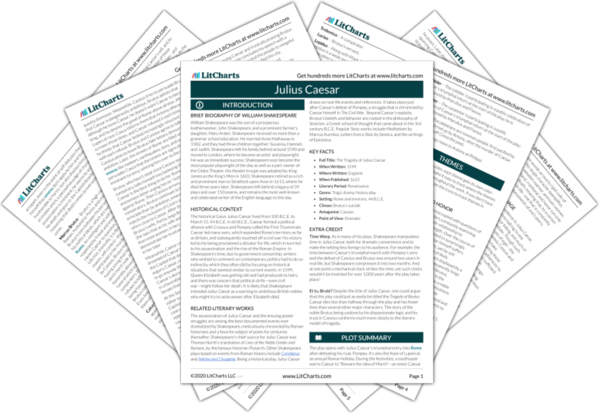Previous
Marcus Brutus
|
Previous
Marcus Brutus
|
Caius Cassius Character Analysis
New! Understand every line of Julius Caesar.
Read our
modern English translation.
|
Next
Mark Antony
|
Men at some time are masters of their fates:
The fault, dear Brutus, is not in our stars,
But in ourselves, that we are underlings.
Let me have men about me that are fat;
Sleek-headed men, and such as sleep o' nights.
Yond Cassius has a lean and hungry look;
He thinks too much: such men are dangerous.
But this same day
Must end that work the ides of March begun;
And whether we shall meet again I know not.
Therefore our everlasting farewell take:
For ever, and for ever, farewell, Cassius!
If we do meet again, why, we shall smile;
If not, why, then, this parting was well made.
